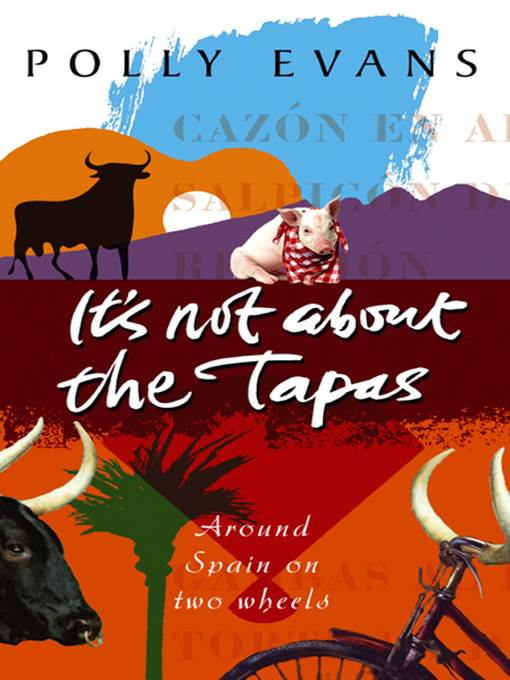
It's Not About the Tapas
کتاب های مرتبط
- اطلاعات
- نقد و بررسی
- دیدگاه کاربران
نقد و بررسی

August 1, 2004
This story of a frustrated young editor who jumps ship from her deadline-laden job in Hong Kong and escapes to a biking adventure in Spain is spiked with moments of hilarity and broad humor. "I set myself the target of a thousand miles and six weeks in which to cover them," she writes. "If my tour took a few ups and downs, if I felt the need to let out the occasional primal scream, well, in Spain nobody would notice. They're used to craziness in Spain. In fact, they positively celebrate it." Evans arranges her route through towns large and small (San Sebastian, Barcelona, Ronda, Oropesa, etc.). Her odyssey of pedaling, chowing and searching for quaint local color often reads like a picaresque, and her book has the same penchant for sharp caricature. Writing of a small town, she observes: "A group of old men stood around the bar, their heads in a cloud of smoke, a carpet of cigarette butts at their feet, and discussed the issues of the day... 'So, we'll see you at the park bench for the three p.m. sit-and stare session?'" Elsewhere, she describes a rural woman carrying a sack of logs: "I had the strong impression she had chopped them herself, quite possible with a mighty slice of her hard, bare hand." Readers who enjoy this vein of humor will delight in her book, and to her credit Evans often turns her wit upon herself. At one point she notes that her trip has made her look like a "toasted whippet, something to do with being both gruesomely gaunt and burnt to a crisp."

December 1, 2004
Bicycle enthusiasts rejoice! Here are two books demonstrating what committed, energetic, and youthful bicyclists can accomplish with ample time and the wherewithal to brave inclement weather, uncomfortable sleeping conditions, bad food, and a lot of pain. Freelance writer and photographer Stamboulis and former book editor Evans take very different approaches to their experiences. Stamboulis, who traveled seven years to complete a 40,000-mile journey around the world-much of it on his bicycle-here focuses seriously on the clashes between traditional and modern culture, particularly on the ways modernization has damaged the environment in sensitive areas such as Tibet and central Asia. He takes his time, lives in various countries, and grows to know the local population well enough to give us thoughtful and well-informed insights about how developed and underdeveloped countries are changing in the Far East, central Asia, Europe, and the United States. Evans, by contrast, has a more lighthearted and irreverent approach to her bicycle adventure, which takes her through Spain in a matter of months. She spices the account of her agony with amusing tidbits from Spanish history, culture, and cuisine. It's hard not to admire her nerve and gutsy spirit-not too many women would travel on a bike alone through Spain, even today! And in her most desperate moments, her love for the country and its culture still shines through. Both books are recommended for larger travel collections in public and academic libraries.-Olga B. Wise, Austin, TX
Copyright 2004 Library Journal, LLC Used with permission.

January 1, 2005
A young Englishwoman leaves her unfulfilling job in Hong Kong and bicycles across Spain. From Basque country through Castile, Evans finds the Spanish hospitable, a nation rife with good food and dancing. Almost immediately she discovers that she lacks the physical stamina for riding her heavily laden bike through the Pyrenees' highest mountain passes. Nevertheless, she presses on, and her clothes grow too large for her newly lean physique. At her best when she leaves her self-involved narrative to give readers the opportunity to absorb the history and cultures of Spain's diverse regions, Evans' eye records delightfully unique sights, such as a group of vacationing female Spanish pensioners with their uniformly black garb and their bright, colorful hair rinses. With a young American writer, she learns about the flamenco tradition but never discovers a verifiable version of flamenco's origins. She finds vestiges of last century's civil war, but comes across few willing to talk about that grim era before democracy was restored.(Reprinted with permission of Booklist, copyright 2005, American Library Association.)

























دیدگاه کاربران